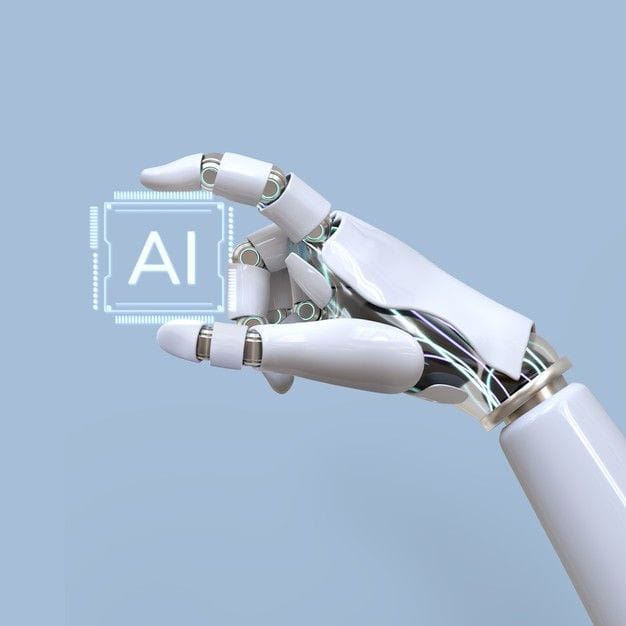Artificial Intelligence: A Journey Through Innovation
Artificial Intelligence (AI):
is transforming industries, from healthcare to cybersecurity, by enabling machines to perform tasks that once required human intelligence. AI encompasses a wide range of technologies, such as machine learning, deep learning, and natural language processing, that allow computers to mimic human cognitive processes like reasoning, learning, and problem-solving.First Let's discuss What is Artificial Intelligence (AI) ?
AI refers to the creation of systems capable of performing tasks that would normally require human intelligence. These tasks can range from simple actions like recognizing patterns to more complex ones like decision-making and understanding language. AI systems can be broadly categorized into two types:
Narrow AI (Weak AI): Designed to perform a specific task, such as facial recognition or playing chess. These systems are highly specialized but limited in scope. Examples include voice assistants like Siri or Alexa.
General AI (Strong AI): A hypothetical form of AI that would be capable of performing any intellectual task a human can do, with the ability to think, learn, and adapt to new situations. General AI has yet to be realized but remains a goal for researchers.
Key components of AI include:
- Machine Learning (ML): A method where algorithms learn from data to make predictions or decisions.
- Deep Learning: A subset of ML that uses neural networks to model and process complex patterns.
- Natural Language Processing (NLP): Allows machines to understand and interact using human language.
A Brief History of Artificial Intelligence:
AI's journey began long before computers even existed. Early philosophers and mathematicians speculated about machines that could replicate human thought. The field of AI officially took off in the mid-20th century.
- 1950s: Alan Turing, known as the father of AI, proposed the "Turing Test," suggesting a machine's intelligence could be evaluated based on its ability to mimic human responses. The Dartmouth Conference in 1956 officially coined the term "Artificial Intelligence," marking the beginning of AI as an academic discipline.
- 1960s–1970s: Researchers created the first AI programs, such as the Logic Theorist and early attempts at chess-playing computers. However, technological limitations led to setbacks, known as the AI Winter, during the 1970s.
- 1990s–2000s: AI gained new momentum with the advent of machine learning and the increasing availability of data. IBM's Deep Blue defeated chess champion Garry Kasparov in 1997, signaling AI's growing potential.
- 2010s–Present: The rise of deep learning and neural networks fueled AI's modern boom. Today, AI is integral to technologies like self-driving cars, medical diagnostics, and recommendation systems on platforms like Netflix and Amazon.
The Significance of AI Today:
AI has become an indispensable tool across various industries. In healthcare, AI aids in diagnosing diseases by analyzing medical images, while in cybersecurity, AI systems predict and detect potential threats, making real-time protection more efficient. Finance relies on AI for algorithmic trading and fraud detection, while entertainment platforms use AI to recommend personalized content.
The ability of AI systems to process large volumes of data and make decisions faster than humans is revolutionizing how businesses operate and how individuals interact with technology. AI's role in automation is particularly notable, enabling processes that would be time-consuming or impossible for humans to perform manually.
Why AI Matters Today:
AI’s significance cannot be overstated. It is transforming sectors by improving efficiency, driving innovation, and creating new opportunities for growth. In healthcare, AI-powered diagnostics and robotic surgeries are improving patient outcomes. In the realm of cybersecurity, AI's role in real-time threat detection is crucial for combating increasingly sophisticated cyberattacks.
AI is not just about replacing human work; it is about enhancing human potential. For example, AI is being integrated into education systems to create personalized learning experiences, catering to individual student needs and improving outcomes.
However, the widespread use of AI also raises important ethical questions. Issues such as privacy, bias, and transparency must be addressed as we integrate AI more deeply into society. These concerns underscore the need for responsible AI development and robust regulatory frameworks.
Looking to the Future of AI:
The future of AI is both exciting and uncertain. As we move toward more advanced AI systems, including General AI, the potential applications are limitless. In the coming years, AI could revolutionize everything from autonomous transportation to human-computer interactions, creating smarter cities, improving healthcare, and even exploring outer space.Yet, the path to this future requires careful consideration of the ethical implications and societal impacts of AI. As we continue to innovate, it is crucial to balance the benefits of AI with its potential risks.
In conclusion, Artificial Intelligence is not just a technological advancement but a transformative force reshaping industries, societies, and everyday life. From healthcare and cybersecurity to finance and entertainment, AI's ability to process vast amounts of data and make informed decisions has revolutionized how we work, interact, and live. As we move toward more sophisticated AI systems, particularly General AI, the possibilities are endless. However, this progress must be accompanied by responsible development, ethical considerations, and regulatory frameworks to ensure AI benefits everyone without compromising privacy, fairness, or transparency. The future of AI is both exciting and challenging, offering immense potential while requiring careful attention to its impact on society.





The future CEO of Open AI writes again
ReplyDeleteStay tuned, There are still many exciting topics to come, Thanks.
DeleteGreat post on Artificial Intelligence! I'm curious how do you see AI addressing current security challenges, especially in areas like data privacy and cyber threats?
ReplyDeleteLooking forward to your thoughts!
Thank you for the question. AI enhances security by improving threat detection, automating responses, and safeguarding data privacy, though challenges such as adversarial attacks and algorithmic biases must be addressed.
Delete